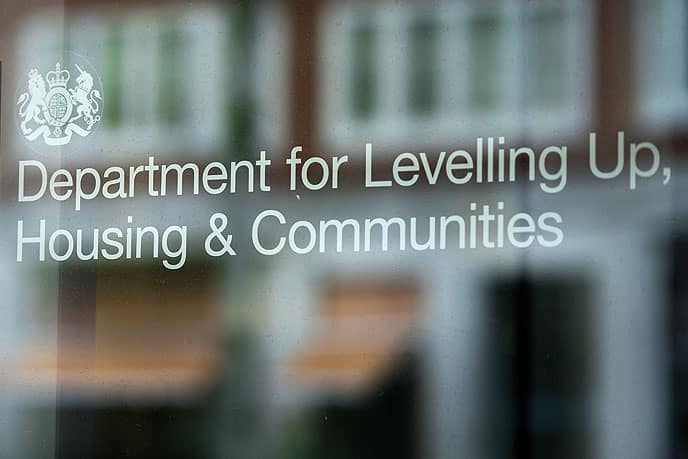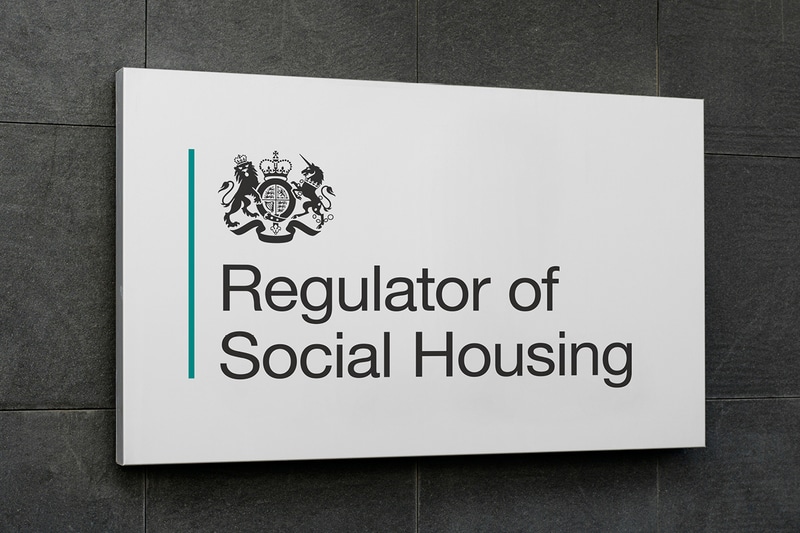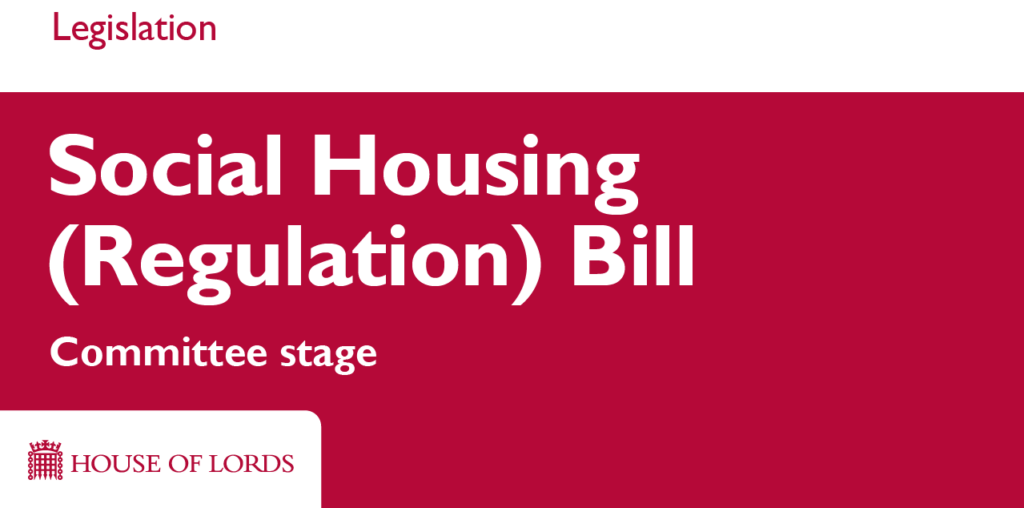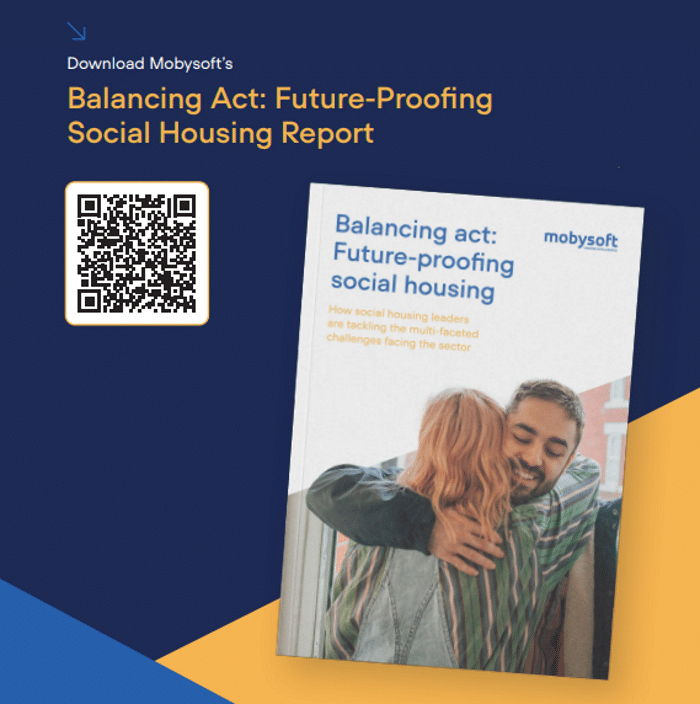Half-Term Report: A Review of The Last 6 Months in Social Housing
The social housing sector in the UK has faced significant challenges in the past six months. The ongoing cost of living crisis, increased energy costs, and rising inflation have made it difficult for social housing tenants to pay their rent, resulting in a surge in the number of tenants falling into arrears (many for the first time). This has had a knock-on effect on social housing providers as a reduction in rental income and increased operating costs resulting from seemingly out of control inflation, stretch their budgets even further. Despite these difficulties, social landlords are striving to deliver services equitably and efficiently for their tenants. In this half-term report, we’ve picked out six of the most pertinent developments within the social housing sector since the start of 2023 and consider their effects on social housing providers.

January: Government Issues Damp & Mould Response
Following the tragic passing of Awaab Ashak in Rochdale and the media furore surrounding the events, the Secretary of State for Levelling Up, Housing and Communities, Michael Gove MP, set out the actions the government is taking in response to the coroner’s report into the toddler’s death. Of the four areas of action proposed, perhaps the most pertinent are the government’s commitment to reviewing the Housing Health & Safety Rating System (HHSRS) and plans to introduce an amendment to the Social Housing Regulation Bill to provide powers to publish a policy statement on tackling serious hazards in social housing, including damp and mould. To learn more about damp and mould and how it affects the social housing sector read our Damp & Mould: A Quick Guide Feature.

February: Social Housing Regulation Bill Ushers in New Training Requirements
Mandatory qualifications are set to be introduced for social housing managers across the sector in England, according to an amendment made to the Social Housing (Regulation) Bill published in February. Changes to the bill require managers to receive an ‘appropriate-level housing management qualification regulated by Ofqual equivalent to a Level 4 certificate or Level 5 diploma in housing, or a foundation degree from the CIH’. This move aims to enhance the professionalism and expertise of social housing managers. However, whilst some commentators welcomed the initiative suggesting that it will encourage new talent to enter the sector and help retain existing staff, others pointed to the increased financial burden that delivering the training will place on social housing providers.

March: Inquiry into Social Housing Sector Financial Sustainability Launched
The government’s Levelling Up, Housing and Communities Committee (LUHC) launched an inquiry that will look into the finances and sustainability of the social housing sector in England. The probe comes in the wake of Clive Betts MP, the cross-party committee’s chair, announcing the inquiry into the sector’s finances at the National Housing Federation’s (NHF) Finance Conference in Liverpool in March. The inquiry will scrutinise the current range of grant funding available to social housing providers and aims to simplify the growing complexity of financial and corporate structures within the sector.

April: New Standard in Tenant Satisfaction Measures Comes into Force
From 1 April 2023, social housing landlords will be subject to new levels of tenant accountability through the UK Regulator of Social Housing’s system to standardise Tenant Satisfaction Measures (TSMs). The TSMs aim to provide rounded information to tenants about their landlord’s performance, covering areas such as repairs, building safety, complaint-handling, respectful and helpful tenant engagement, and responsible neighbourhood management. The introduction of these standardised measures will improve transparency and enable tenants to have a clearer understanding of their landlord’s performance. For social landlords however, ensuring the necessary instruments are in place to meet these standards – especially in relation to repairs services – could put further strain on already stretched resources.

May: Social Housing Regulation Bill Progresses
The Social Housing Regulation Bill is currently passing through Parliament, providing a legal framework for reform in the social housing sector. The bill aims to strengthen regulation and accountability within the sector, addressing issues such as tenant satisfaction, safety, and affordability. However, it also poses challenges for housing associations, particularly in terms of meeting the new standards while managing existing properties and navigating budget constraints.

June: Two-thirds of Associations Have More Tenants in Arrears Than During the Pandemic
A recent survey of housing associations revealed that more tenants are in rent arrears now than during the height of the pandemic. The research, which canvassed 100 senior executives, revealed that 66% of respondents believe that rent arrears have increased. The poll also indicated that 33% of housing associations are implementing flexible payment plans or other measures to mitigate arrears, such as rent or service charge holidays. Additionally, 32% are establishing hardship funds, while 29% are partnering with food banks. The survey warned of a potential “rent arrears epidemic” as more tenants are falling into debt for the first time. Among the challenges faced by landlords, income collection, rent arrears, the social housing rent cap, and economic uncertainty were mentioned. Get your own copy of the Balancing Act: Future-Proofing Social Housing report via our Guides section.
The past six months have perhaps been some of the most tumultuous and challenging ever faced by the social housing sector, with multiple external factors putting pressure on organisations who are already up against it when it comes to maintaining service levels. All of the developments explored here will undoubtedly have an effect on not only organisations’ ability to deliver equitable housing provision to existing tenants, but also impacts their commitment to proving increased numbers of social housing properties. All this comes in the midst of a recruitment and retention crisis too, something that has seen many landlords look to technological solutions to overcome.
As always within social housing, it’s difficult to predict what will come next, even more so when the current government’s lack of clarity when it comes to social housing policy and a revolving cast occupying the role of Housing Minister make it hard for social landlords (and even regulators) to plan ahead. What is for certain however is that the sector is a hardy and resourceful one that remains committed to providing quality and affordable housing for tenants. If the happenings of the past six months are anything to go by then it looks as though further collaboration between stakeholders, innovative, technological approaches to tenant welfare, and a focus on maximising productivity from existing resource will be crucial in addressing the ongoing challenges the sector faces.
- Social Housing 2025: The Experts Predict What’s Next - January 2, 2025
- This Month In Social Housing: November 2024 - December 3, 2024
- Leveraging AI in Social Housing: Building a Data Strategy for Enhanced Compliance and Efficiency - November 26, 2024